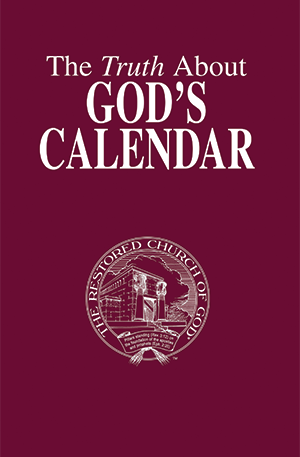Certain numbers in the Bible have long been recognized as having significance. Although there are sometimes relationships and meanings, one should be careful not to “read in” various meanings that simply do not exist, practicing balance in all such observations.
The number one, for example, signifies unity or beginnings. In Ephesians 4:3-6, Paul wrote, “Endeavoring to keep the unity of the Spirit…There is one body, and one Spirit…One Lord, one faith, one baptism, One God and Father of all…” Jesus Christ is the FIRST of the firstfruits that will follow Him at His Return (I Cor. 15:23).
The number three is associated with completeness or resurrection. Jonah was in the belly of the fish and Christ was buried in the earth for three days and three nights. (To learn more about this, read our booklet Christ’s Resurrection Was Not on Sunday.) Daniel prayed three times a day (Dan. 6:10); Peter denied Christ three times (Matt. 26:74-75); and Christ prayed three times to His Father before He was taken to be crucified (Matt. 26:36-45).
Six is man’s number. The first man, Adam, was created on the sixth day of the creation week (Gen. 1:27). Revelation 13:18 identifies the end-time Beast power with “…the number of a man; and his number is Six hundred threescore and six [666].”
The number seven conveys spiritual perfection, as represented by God’s creation of the seven-day week, the seventh-day Sabbath, and the seven annual Holy Days. (For more details, read our book Saturday or Sunday – Which Is the Sabbath? and our booklet The Truth About God’s Calendar.) Also, the number seven is significant in prophecy. In the book of Revelation, we read of seven Churches, seven Spirits, seven candlesticks, seven seals, seven trumpets [trumpet plagues], and the seven last plagues [vials]. There are numerous other references to the number seven in this book alone.
The number 12 is also significant, as it implies structural beginning or foundation of organization, as well as governmental perfection. The nation of Israel was comprised of twelve tribes, and represented a physical type of God’s government on earth. The twelve apostles were chosen by Christ to serve as the foundation for His Church (Matt. 10:1-7), as well as the kingdom of God (Luke 22:29-30). Twelve thousand from each tribe of Israel constitute the 144,000 of Revelation 7 and 14.
The number 40 signifies completion and testing. Israel had been in the wilderness for 40 years for reasons that included proving or testing (Deut. 8:2). We find the 40 years of testing in the book of Judges (3:11; 5:31; 8:28), in which Israel had been given 40 years of peace and prosperity on various occasions, only to drift back into idolatry and rebellion. Sometimes Israel was given 40 years of punishment (Judges 13:1). Certain kings of Israel reigned for 40 years (II Sam. 5:4; I Kings 11:42; II Kings 12:1).
Other numbers having meaning include 50, 100, 1,000 and a few others.





















